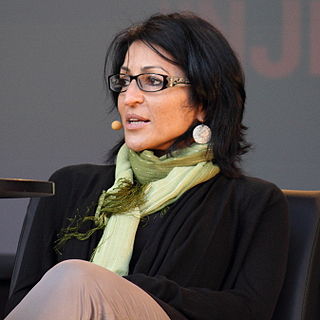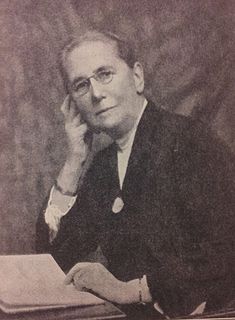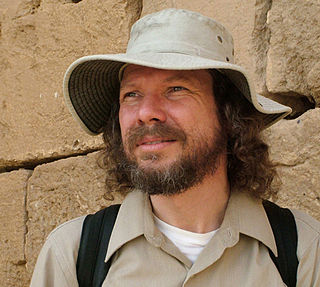A Quote by Simone Weil
We do injury to a child if we bring it up in a narrow Christianity, which prevents it from ever becoming capable of perceiving that there are treasures of purest gold to be found in non-Christian civilizations. Laical education does an even greater injury to children. It covers up those treasures, and those of Christianity as well.
Related Quotes
Selfishness is when we pursue gain at the expense of others. But God doesn’t have a limited number of treasures to distribute. When you store up treasures for yourself in heaven, it doesn’t reduce the treasures available to others. In fact, it is by serving God and others that we store up heavenly treasures. Everyone gains; no one loses.
We are often hindered from giving up our treasures to the Lord out of fear for their safety; this is especially true when those treasures are loved relatives and friends. But we need have no such fears. Our Lord came not to destroy but to save. Everything is safe which we commit to Him, and nothing is really safe which is not so committed.
He who lays up treasures on earth spends his life backing away from his treasures. To him, death is loss. He who lays up treasures in heaven looks forward to eternity; he's moving daily toward his treasures. To him, death is gain. He who spends his life moving toward his treasures has reason to rejoice. Are you despairing or rejoicing?
Treasures in heaven are more permanent. They are more satisfying. There are only two reasons why we are not as successful as we would like to be in laying up earthly treasures. One is that we sometimes get into the wrong business; and the second reason is that even though we may be in the right business, we do not always work at it effectively. Interestingly enough, these are the same reasons why we fail in laying up treasures in heaven.
Spiritual knowledge is like a house built in the midst of secular and pagan knowledge, in which there is laid up, like a solid and well-secured chest, the knowledge of the inspired Scriptures and the inestimable riches they contain. Those who enter into the house will never at all be able to see those treasures unless this chest is opened for them. But it does not belong to human wisdom (cf. I Cor. 2:13) ever to be able to open it, so that the riches of the Spirit deposited in it remain unknown to all who are worldly.
Give up salt, give up sugar, give up spices, give up vegetables, give up chutnies, give up tamarind. Serve Bhangis, serve rogues, serve inferiors, remove faecal matter. Do not revenge, resist not evil, return good for evil, bear insult and injury. Forget like a child any injury done by somebody immediately. Never keep it in the heart. It kindles hatred.
It was not Christianity which freed the slave: Christianity accepted slavery; Christian ministers defended it; Christian merchants trafficked in human flesh and blood, and drew their profits from the unspeakable horrors of the middle passage. Christian slaveholders treated their slaves as they did the cattle in their fields: they worked them, scourged them, mated them , parted them, and sold them at will. Abolition came with the decline in religious belief, and largely through the efforts of those who were denounced as heretics.
One may have broad or narrow talents, but only education renders them useful. Schools set up to train people will develop the intelligence of those who have it and end the stupidity of those who do not, providing a specialty to those who have narrow talent and broad knowledge to those with all-around ability.
Well-referenced, with numerous quotations from renowned Egyptologists and classical scholars, Acharya's penetrating research clearly lays out the very ancient pre-Christian basis of modern Christianity. Those who espouse Christianity beware! After digesting the evidence, you will never again view your religion in the same light.
My spiritual path has largely been Christianity - a label that I embraced and then rejected and have partially embraced again, as my understanding of Christianity has changed over time. When I accepted the mainstream, dogmatic definition of Christianity there came a point when I had to say, "Well, if that's what a Christian is, I'm not one."







































